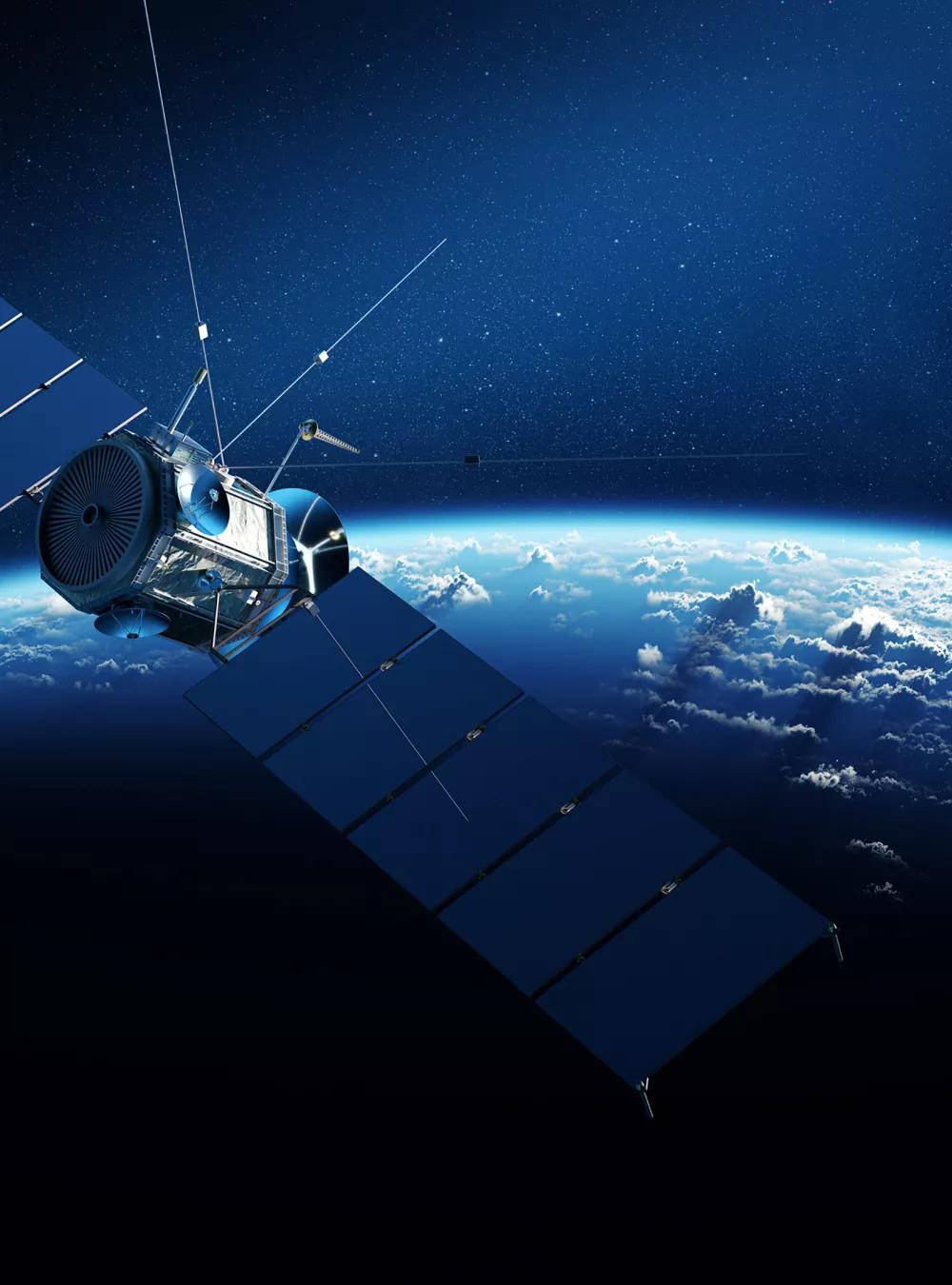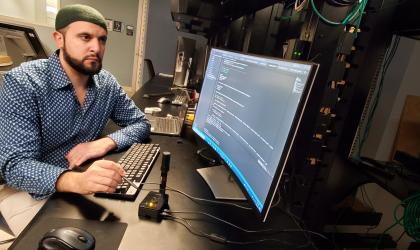GPS signals may originate from 12,000 miles out in space, but their applications—from smart phones to travel to banking—hit close to home. With GPS receivers vulnerable to malicious attacks, MITRE researchers developed a reliable, low-cost capability to help protect this critical technology.

Satellite Systems Practically Run The World: How Do We Protect Them?
When “mysterious GPS interference” caused the October 2022 closure of a Dallas airport runway and the rerouting of some flights, the Federal Aviation Administration warned pilots in the area that GPS should be considered unreliable.
The problem, which persisted for several days, was similar to a January 2022 incident in Denver. Fortunately, in both cases alternate navigation methods kept aircraft safe. And investigators ultimately determined the cause of the issue in Denver was unintentional. But that’s not always the case.
GPS receivers, part of some Global Navigation Satellite Systems, provide key position, navigation, and timing capabilities for public and private uses every day. Think: air and maritime travel, telecommunications, finance systems and power grids, self-driving vehicles, and more.
The technology can be vulnerable to adversary attacks like jamming and spoofing. Jamming involves attempts to degrade or deny the ability to receive GPS signals. With spoofing, adversaries maliciously interfere with GPS signals to “trick” receivers with incorrect signals. Nefarious actors using jamming or spoofing could threaten U.S. safety, stability, and prosperity.
With GPS integrity at stake, we think this technology could be a game-changer.
MITRE is developing technology to assist with countering such risks. Our peak suppression monitor, for example, offers a self-contained, software-only solution that detects interference before it corrupts a receiver’s position, navigation, and timing functions.
We used commercial hardware to test and demonstrate the effectiveness of the real-time, low-cost monitor in field and laboratory settings. In the air, on the road, and at sea, the technology reliably and accurately detected a variety of spoofing attacks—including ones undetectable by some currently available commercial solutions.
“We threw a lot at our prototypes, and they succeeded each time. With GPS integrity at stake, we think this technology can be a game-changer,” says MITRE engineer Ali Odeh.
Delivering “Small” Solutions for Big Problems
Developed under our independent R&D program, this patented innovation can be licensed through our technology transfer office. Transitioning the technology to external industry partners enables the capability to benefit both our government sponsors and the public.
We prototyped the monitor on various platforms, including a carry-on case, a small single-board computer, and on consumer cell phones. The compact platforms will enable users to easily deploy these detection methods to identify issues with GPS spoofing.

Above, MITRE's Ali Odeh tests one of the peak suppression monitor prototype's ability to detect GPS spoofing.
The ultimate goal: prevent or mitigate attacks on satellite systems essential to many aspects of the modern world—and protect lives and livelihoods.
MITRE has long been on the ground floor of GPS technology’s evolution. Our researchers and engineers have worked across government and industry for years to address threats and help improve the resilience of the U.S. system.
Moving forward, our research team continues to work on fully characterizing the peak suppression technology and compare it to other available approaches. We’re also evolving the capability to not only detect spoofing but to mitigate it.
This and other technologies in our portfolio of complementary approaches aim to allow GPS receivers to differentiate between authentic and false signals to continue their operations.
As GPS capabilities expand, mitigating vulnerabilities will be increasingly important to its stability and reliability.
“We want people to be able to trust their GPS units for critical military, commercial, and civil uses around the world,” Odeh says.
[VIDEO] Learn more about MITRE’s ongoing work in this space.
Join our community of innovators, learners, knowledge-sharers, and risk takers. View our Job Openings